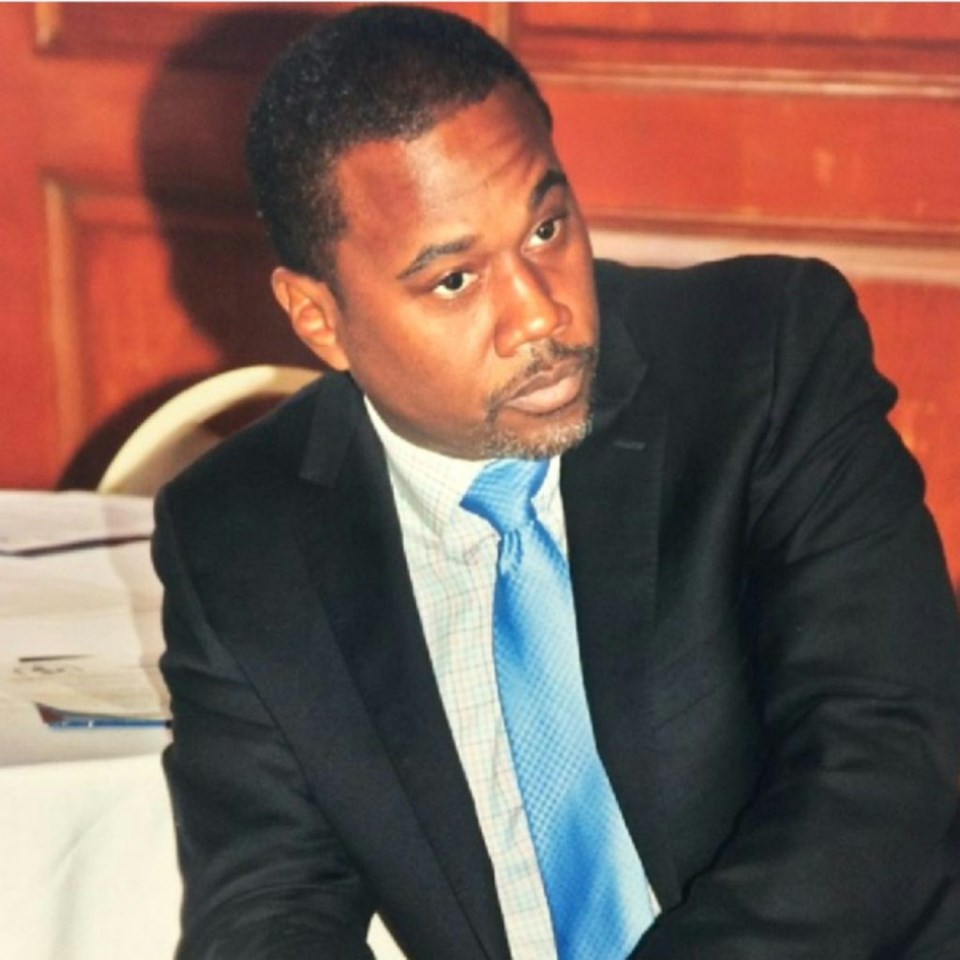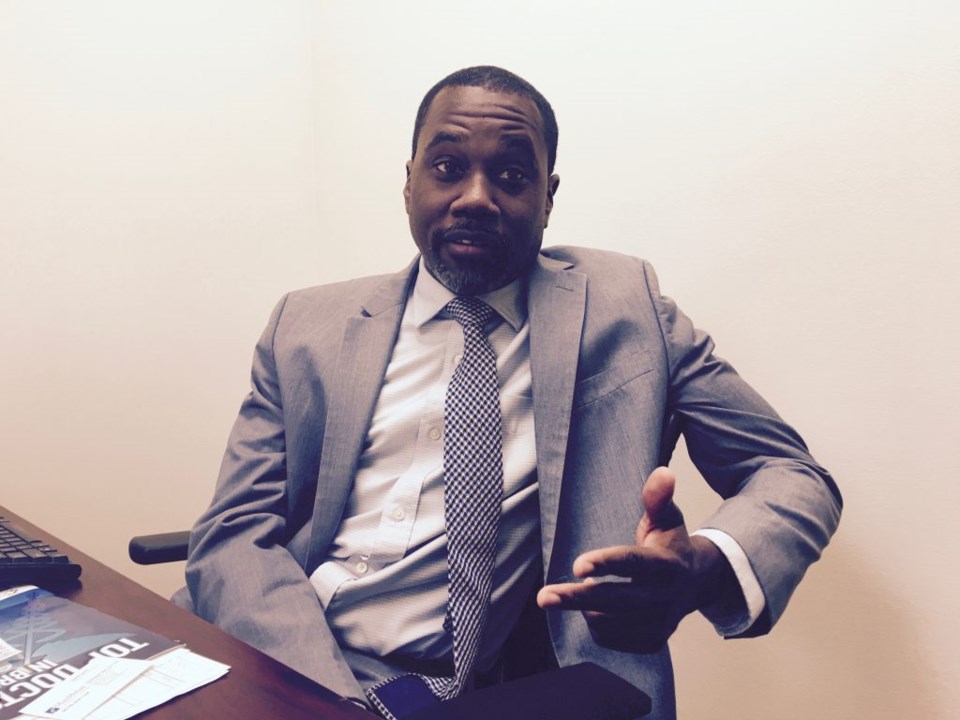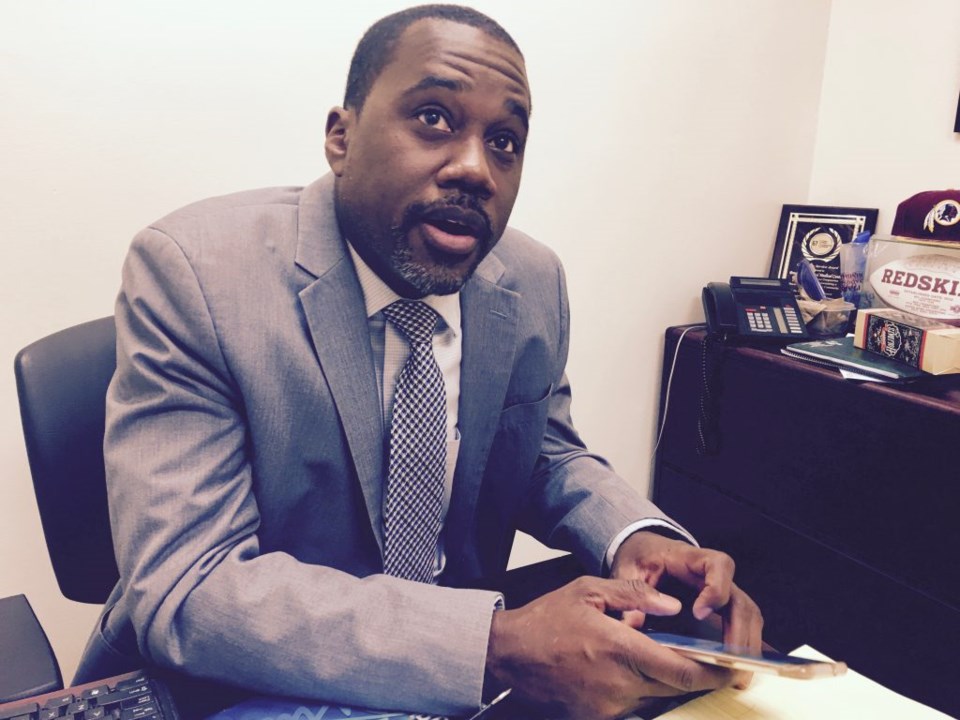
A lot has changed in Brownsville and East New York in the last five years-- commerce, real estate development, community services all have expanded. Clearly, it is the next area of the borough poised for tremendous growth.
However, despite all of these socio-economic shifts, one thing has remained the same-- the community's health challenges, compared to the city overall. The infant-mortality rate in Brownsville and East New York is still the worst in the city, along with asthma rates in children, heart disease, diabetes and HIV-related deaths (meanwhile, the city's overall HIV-related death rate fell to an all-time low).
To meet these challenges, Brookdale Hospital and Medical Center over the past five years has endeavored to take a more holistic approach to how they administer health care to the community. This changing face of healthcare can be seen in several new areas, including the expansion of its urgent care centers, increased interface with the community and the hiring of its first African-American vice president, Khari Edwards.
With a 20-year career in politics, community development and healthcare, Edwards is helping to lead the charge in redefining the importance of health as a priority in the lives of Brookdale's clientele.
In 2007, while serving as the Brooklyn Regional Representative for Governor Spitzer, he was instrumental in bringing Brooklyn its first and only Civil Service Center to Medgar Evers College, filling over 1,000 vacant state jobs. Edwards was also instrumental in helping with the transformation of Admiral's Row, a long-neglected section of the Brooklyn Navy Yard and, alongside Congressman Towns persuaded the New York State Historical Society to eventually re-designate the site, making space for a long overdue supermarket for the residents of Fort Greene.
Next, in his role as special assistant to Senator John L. Sampson, Edwards took the lead on behalf of the State Senate Conference to help restructure Brooklyn's hospital systems—which led him to his newest role, as vice president of External Affairs for Brookdale Hospital and Medical Center.
The Brooklyn Reader recently had a chance to sit down with Khari Edwards to learn more about his journey and overall goal in helping to bring the health of Brownsville and East New York into the 21st century and beyond.
---------------------*---------------------
Brooklyn Reader: What does your job entail as Brookdale Hospital's Vice President of External Affairs?
Khari Edwards: When I first came to Brookdale, there was a community relations department and a public affairs department. Since I was tasked to oversee both departments, I combined the two to become external affairs. So external affairs is really a grouping of public affairs, community affairs, government affairs and some member relationships as it pertains to MWBE vendor relations.
BR: How has your previous experience and your most recent job as director of intergovernmental relations under the leadership of John Sampson best served as segue into what you're doing today?
KE: It was an easy transition, because everything I did was related to everything outside of the senate. So I dealt with the governor's office, the state assembly, the city, outside vendors so it was just a very smooth transition. The last three years there, I dealt with health policy to look at the Brooklyn healthcare system. So I was a big part of the Sampson White Paper, which was a counteraction to the MRT Report that the governor had put out. So when he lost the Democratic leadership, I was asked to come and work in that capacity here as a liaison between the community, the elected officials and Brookdale.
 BR: I understand you are the first person of color to occupy this role? Why is that significant?
BR: I understand you are the first person of color to occupy this role? Why is that significant?
KE: On March 15, it will be 3 years I've been in this role, and yes, I was the first African-American in the C-suite of Brookdale Hospital-- the first vice president of color, which was a great recognition. Now we have five. Unfortunately, a lot of other hospitals in Brooklyn, their C-suites are not representative of the people that they serve, which is unfortunate. But to [Brookdale CEO] Mark Toney's credit, he brought in others that represent the community.
BR: What's your vision for your role here at Brookdale Hospital?
KE: I just want people to pay attention to their health. I've been a Type 1 Diabetic since I was 4 years old, so health has always been of interest to me. I've had several near-death experiences because I wasn't taking care of myself. I understand that if you don't take care of your health, everything else falls apart. Before I came here, I wanted to run for City Council in the 35th District. In pulling out of that race, I realized that the more you represent the community and their needs, the more you play the role of an advocate of the community. Here, I would like to not see it take 15 years to educate a community on why eating bad is not good or why getting a yearly check up is so important.

BR: When it comes to healthcare in communities of color, particularly those that are struggling, what do feel are the greatest barriers of entry?
KE: We, as a community historically have a complicated and interesting relationship with hospitals. During slavery, hospitals became like a refuge of sorts, an escape from all of the hard work—a place you went to when there was no place else to go. We don't want to pre-check and find out anything until it's too late. The emergency doctors become our primary care doctors, because we work too hard and don't have time to go to the doctor or family becomes more important. So we wait until the end to deal with hospitals and our health. But by that time, it's Stage 4 Cancer; by that time, you're Type 1 Diabetic; but by that time, it can be too late. This is probably the most difficult thing to get people to understand. Whether they have children or not, it's about people identifying what is important to them, and then understanding that they cannot enjoy those things if they are not healthy.
BR: What have you found has been most effective for Brookdale Hospital, as far as galvanizing the community around their own health and changing the community's health outcomes?
KE: At Brookdale, we spend a lot of time on health education, going out in the community and putting it in very black-and-white terms for folks. Trying to educate the community about work-life balance. Teaching a person that their child is just as important as their health, which is as important as their rent. Helping people realize that if you're sick in bed, you can't work; if you're sick in bed, you can't take your kid to school or ballet class. So we try to educate the community as often as we can that you should go to the doctor early enough to make sure you're not sick in bed. So many things are intertwined to make the holistic community. Your education is tied into your health, which is tied into your employment, which is tied into your overall well being. None of these things are separate. It's a domino effect and everything is intertwined.
We do so many things well for a community that has so many needs. So, whether you're coming here to have a child, to test for HIV or treat AIDS; whether you're coming here for a checkup or hand surgery, we do pretty much everything well. If you come to Brookdale, there's no care you won't get. We're saving lives everyday; we're helping people get healthy everyday.



